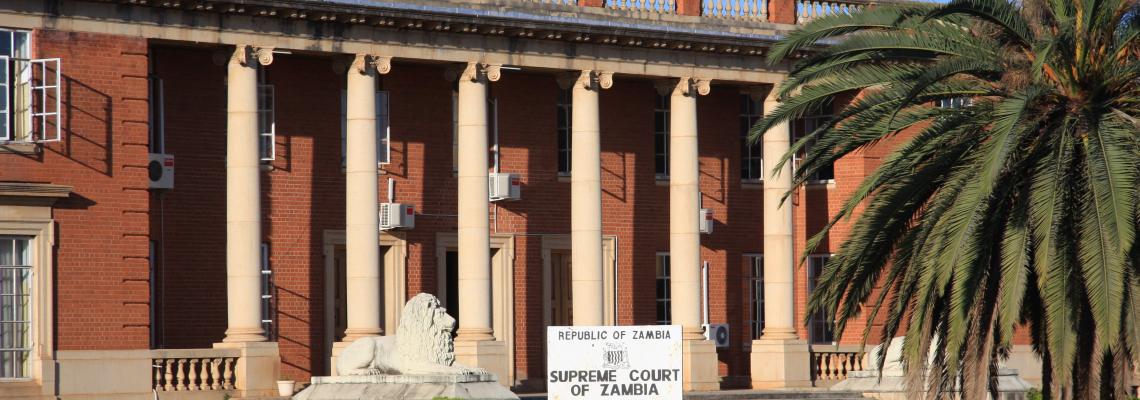
Did you know that appeals from the Tax Appeals Tribunal still lie to the Supreme Court despite the establishment of the Court of Appeal?
By
Kunda Nyasulu, LL. B (ZAOU), Trainee Attorney
The Supreme Court (the Court) in Zambia Revenue Authority and Professional Insurance Limited Appeal No 34 of 2017 (the ZRA case) was faced with a somewhat interesting paradox. One would ordinarily think that subsequent to the establishment of the Court of Appeal, appeals from quasi-judicial bodies such as the Tax Appeals Tribunal would lie to the Court of Appeal. This decision given by a divided Supreme Court has held that this is not the case.
In the ZRA case, a preliminary issue was raised touching on whether or not the Court had the requisite jurisdiction to hear and determine an appeal emanating from the Tax Appeals Tribunal. The question as to whether the Court has the jurisdiction or the lack thereof arose from two separate provisions of two separate governing statutes which appeared to be contradictory. The said provisions are in s 15(1) of the Tax Appeals Tribunal Act No 1 of 2015 on the one hand, and s 22 of the Court of Appeal Act No 7 of 2016. While the former provision stipulates that an appeal against a decision of the Tax Appeals Tribunal (a quasi-judicial body) ought to lie to the Supreme Court, the latter states that an appeal from a quasi-judicial body ought to lie to the Court of Appeal.
The majority of the Court (Malila and Wood JJS; Mutuna JS dissented) was of the considered view that the two provisions ought to be read in a way that promotes harmony and not the contrary. The Court stated that the ‘Supreme Court does not generally have the jurisdiction to hear appeals from quasi-judicial bodies unless other laws give it such jurisdiction.’ Based on the foregoing, the Court opined that s 15(1) of the Tax Appeals Tribunal Act fell under the exception ‘[…] unless other laws give it such jurisdiction.’
The Court further elaborated that though the Court of Appeal has the mandate to hear appeals from quasi-judicial bodies (except a local government electoral tribunal in respect of which other laws give such jurisdiction to the Supreme Court under Article 125 (2)(b)) of the Constitution, that mandate is not exclusive and that an interpretation that would imply the contrary would be absurd.
* For any legal queries on tax and related matters, and to benefit from our client-centered, results oriented approach to legal issues, please contact Kunda at kunda.nyasulu@rbglp.com or info@rbglp.com.

